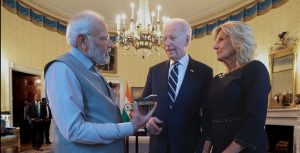Uttar Pradesh Chief Minister Yogi Adityanath has declared three days of state mourning in memory of Samajwadi Party founder Mulayam Singh Yadav, who died on Monday. The 82-year-old Yadav died in Gurugram’s Medanta hospital.
Former Chief Minister Mulayam Singh Yadav’s last rites will be performed with full state honours, according to Chief Minister Yogi Adityanath.
“The government of Uttar Pradesh has declared a three-day state mourning period in honour of Mulayam Singh Yadav’s death. His final rites will be carried out with full state honours “Adityanath said in a Hindi tweet. Adityanath also called SP chief Akhilesh Yadav and party general secretary Ram Gopal Yadav to express his condolences, according to sources.
Also Read| Samajwadi Party: A brief history
What are the aspects of state mourning?
When a prominent politician or public figure dies, the government declares a state of mourning.
When a state of mourning is declared for a politician or public figure, his final rites are carried out with full state honours. During a state funeral, the coffin containing the deceased’s mortal remains is draped in the tricolour.
In addition, the national flag tricolour is flown at half-mast in state mourning, according to the ‘Flag Code of India.’ However, in order to honour the motherland, it is raised to the top of the mast and then lowered.
Also Read| Who is Prateek Yadav, Mulayam Singh Yadav’s stepson?
The gun salute ceremony takes place during the funeral. During times of state mourning, a public holiday is declared.
Prior to this, only the deaths of prime ministers, state chief ministers, and central ministers were cause for state mourning (formerly or currently in office). This regulation has now been altered. All those individuals who have worked to improve the reputation of the country are now given this honour.
Also Read| Who was Mulayam Singh Yadav’s second wife Sadhna Gupta?
The state government makes this choice in light of his standing and contributions. This governmental honour is now granted to individuals who have made significant contributions to politics, science, literature, art, and the law, among other fields.







